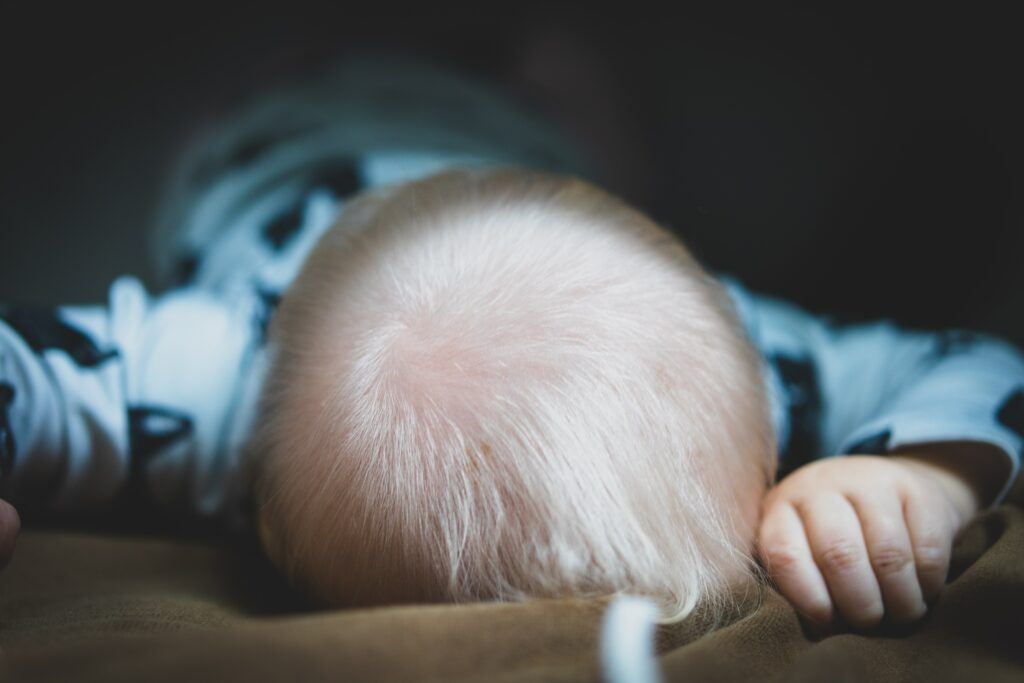The question doesn’t just stop at, “Why does hair turn gray with age?” It’s also a concern why it does at any age.
Typically, our hair turns gray as we age, and there are factors that determine how soon. Three such factors are genetics, nutritional deficiency, and medical conditions.
This should be no surprise, as it is in keeping with the changes we go through in life in general.
Shades will vary, individuals will decide how comfortable they are with it. If they are not, they will choose to apply some type of hair coloring product.
Overall, the question, “Why does hair turn gray with age?” is ongoing.

Is It Gray, Silver or White Hair? | Shades of Gray …
… and can it be reversed?
Some people say gray hair, some say silver, and some say white. Well, it could be either as it’s no longer colored or black.
The variations of hue in hair with little or no pigment is caused by how it is reflected by light or the color of other strands it’s surrounded by.
Another determinant is the individual’s natural hair color. All colors will not look exactly the same.
If you are asking, “Why does hair turn gray as we age?” you may also ask if it can be reversed. Maybe …
… If this is due to a nutritional deficiency or medical condition, changes in the diet or improvement in health may allow the hair to revert to its natural color.
One nutritional deficiency that may affect hair color is Vitamin B12. This is essential for providing oxygen via red blood cells throughout the body. Hair suffers in more ways than one when there is a shortage of this essential vitamin.
A medical condition is vitiligo which is known for its white patches of skin and hair. It may occur when an irregularity causes the non production of melanin in the hair follicle.
What Is a Typical Time Frame? | Generally Speaking
There is no set time frame when someone will start to go gray. A reasonable range could be from 20 years old to the late 40s. Some people begin much earlier while others later.
So, why does hair turn gray with age in the first place? The pigmentation-causing melanin is mainly responsible. More accurately, the lack of this substance.
Hydrogen peroxide is found in hair follicles. This causes melanin to fade over time, resulting in the hair getting lighter. Just as in the absence of the cortex (the layer of the hair shaft containing melanin), vellus hair which covers the body is light in color.
Hair on different parts of our bodies do not all turn gray at the same time.

To Color or Not to Color Your Hair | Your Choice.
Aging gracefully with gray hair is not acceptable by everyone. To some, it may be a nightmare, ghastly at worst. For others, it’s, yes … graceful.
What makes the difference? Perception, perhaps. Not everyone wants to be perceived as being old or older. Despite its association with wisdom, this tends to be dismissed as a myth.
One way to look at it is that wisdom is achieved overtime. A wise person usually draws on and learns from experiences in their personal lives and from others. This may take years to accomplish.
Various types of hair coloring products have come to the rescue of both men and women who do not care to or are not ready to embrace gray hair.
From temporary to permanent, the categories are …
- Rinse or Temporary: This is the least permanent and will even rub off on your clothes and pillow. It does not enter the hair shaft, and tends to fade after as little as one wash.
- Semi-permanent: This minimally affects the hair shaft internally and will wash away in a few days.
- Demi-permanent: This falls in the middle of semi and permanent. The chemical used, penetrates the hair shaft but is milder than that used in permanent hair colors. It will last for a few weeks. Touch up of the roots need to be done.
- Permanent: This is not affected by shampooing. New growth will need to be touched up as needed.
The type of hair, genetics, and other factors such as medical condition may determine the effectiveness of any color treatment. Naturally, the result will be different for everyone.
There are also a vast range of colors to choose from, very light to extremely dark. Sometimes coloring the hair may be a fashion statement, or just a statement … period!
Whatever the reason, you choose how subtle or wild you want to go.

Why Do Some Children Get Gray Hairs | Even Babies?
Some babies are even born with a few strands or patches of gray hair. This is rare but not unusual.
In utero (embryo or fetus in womb), there is no melanin until the later stages of the embryonic development. Therefore, the hairs are initially white or very light in color.
Upon birth, the hair may have strands or patches of gray. Or it can be a variety of shades, even though it may change at different stages of the individual’s life. In adulthood, the cycle continues.
Bear in mind, however, that it could be a sign of an irregularity. You should check with your medical professionals to ensure there isn’t a problem.

Gray, Silver or White | It’s the Process.
So here’s the thing: We age and our hair color changes along with everything else that takes place with our bodies. If it is reversible by nutrition or supplements, that’s only temporary. Ultimately, the time will come for a more permanent change.
Babies, children, young and older adults are candidates for gray hair. Typically, it may start between 20 and the late 40s due mainly to genetics.
Aging gracefully does not include embracing gray hairs by everyone so using any degree of hair coloring products is very popular, but …
… as it was in the beginning, so it shall be in the end.
That’s it in a nutshell.
I hope this short article, “Why Does Hair Turn Gray with Age? | Or at Any Age?” has helped you in some way. There is a vast amount of information on the subject and related matter. This is just an introduction especially for those who are at a loss and need to be pointed in the right direction.
Feel free to leave your questions and comments below. I will do my best to address them.